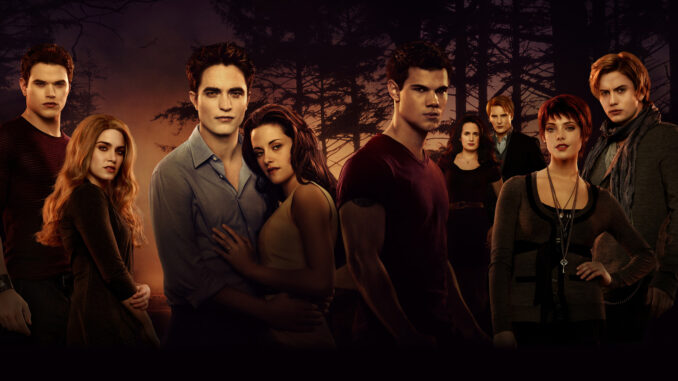
Revisiting Twilight: Why This Vampire Love Story Still Captivates Audiences
The year 2008 felt like a pivot point for a generation. The world was introduced to Forks, Washington, a perpetually overcast town, and to a love story that would swiftly become a global phenomenon, a cultural juggernaut, and, eventually, a lightning rod for relentless mockery. Twilight, Stephenie Meyer’s saga of a human girl, Bella Swan, and her immortal vampire beloved, Edward Cullen, ignited a fervent fandom that spanned age groups and continents. Yet, as the initial hysteria faded and critical voices grew louder, a curious question lingered: why, over a decade later, does this seemingly simplistic, often maligned, vampire romance still manage to sink its teeth into new and old audiences alike? The answer lies not merely in its fantastical elements, but in its masterful tapping into universal human desires: the yearning for intense love, the fantasy of extraordinary transformation, and the enduring power of a shared cultural touchstone.
At its core, Twilight captivated because it offered an idealized, almost mythic, version of first love. Bella Swan, an everygirl in every sense of the word – awkward, observant, and feeling perpetually out of place – stumbles into a connection so potent it reshapes her entire world. Edward Cullen is the epitome of the dangerous yet devoted hero: impossibly beautiful, superhumanly strong, ancient in wisdom, and yet, paradoxically, utterly fixated on a seemingly unremarkable human girl. Their romance is an all-consuming fire, a love at first sight that transcends logic and danger. Who hasn't, at some point, dreamed of being the sole focus of such intense, unwavering devotion? The whispered promises, the predatory grace of Edward’s movements, the very real threat he poses to Bella juxtaposed with his fierce protectiveness – these elements combine to create a palpable tension and an irresistible fantasy of being utterly seen, chosen, and adored, flaws and all. It’s a love that feels fated, predestined, and utterly beyond the mundane confines of high school corridors.
Beyond the immediate allure of forbidden romance, Twilight expertly leveraged the deeply ingrained human desire for escapism and transformation. Forks, Washington, with its perpetual rain and small-town ennui, serves as the perfect canvas for the extraordinary. Bella’s initial arrival mirrors the feeling of many adolescents – new, uncertain, and longing for something more than the ordinary. Her journey is one of discovering a secret world hidden in plain sight, a world populated by glittering vampires and shape-shifting werewolves. This blend of the mundane and the supernatural is inherently fascinating. It suggests that magic might lurk just beneath the surface of our own lives, waiting for us to stumble upon it. For many, Bella’s eventual desire to become a vampire herself, to shed her human limitations and join Edward in immortality, is not merely a plot device but a profound wish fulfillment. It speaks to the yearning to transcend the ordinary, to achieve a heightened state of being, and to find a place where one truly belongs, even if that place is in the eternal night.
Crucially, Twilight's enduring appeal is significantly bolstered by its status as a cultural phenomenon and, perhaps surprisingly, its polarizing nature. The "Team Edward vs. Team Jacob" debates raged across school cafeterias and online forums, creating a shared experience that transcended the pages of the books or the frames of the films. It was a common language, a point of immediate connection or passionate disagreement. Even those who claimed to "hate" Twilight often engaged with it, either through critical consumption, parody, or simply by understanding the cultural references. This shared lexicon and the pervasive nostalgia for a defining era of young adult fiction means that revisiting Twilight often feels like a return to a specific moment in time. For many millennials and Gen Z individuals who grew up with the saga, it’s a comfort watch, a familiar world to inhabit, much like a beloved childhood blanket. Its perceived flaws often become part of its charm, transforming it into a "guilty pleasure" that invites a knowing wink and a communal appreciation for its unique brand of melodrama.
In essence, Twilight might be a story about vampires and werewolves, but its lasting power stems from its very human heart. It offers a dream of absolute, unconditional love, a window into a fantastical world just beyond our grasp, and a shared cultural memory that continues to resonate. While the sparkling vampires and angsty declarations might still invite a chuckle, the underlying emotional truths – the yearning for connection, the desire for transformation, and the indelible mark of first love – remain potent and universal. Revisiting Twilight isn't just about re-watching a movie or re-reading a book; it's about revisiting a formative experience, a cultural touchstone that, for all its perceived imperfections, truly captivated a generation and continues to hold a surprisingly firm grip on the collective imagination.
